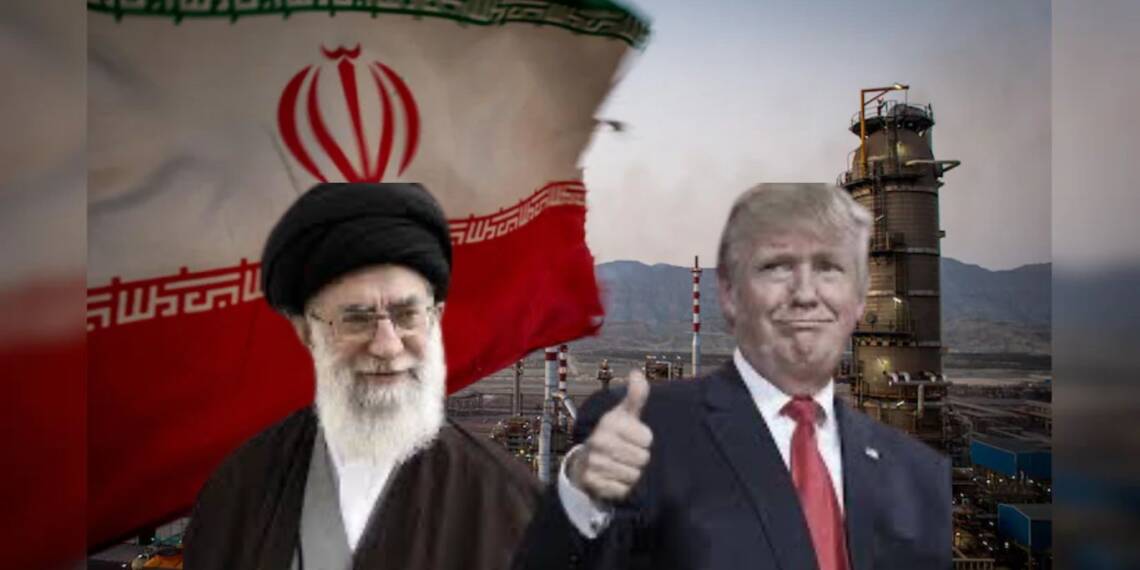The U.S. president has been in West Asia for four days, and speculations about the Iranian nuclear deal have again started heating the issue. Both sides are willing to have a talk and reach a common ground. However, the expectations of both nations are different.
Iran has said it is ready to make major concessions in its nuclear program in exchange for the lifting of U.S. economic sanctions. During the visit to the region, Trump said he doesn’t want Iran to have nuclear weapons.
Top Iranian official Ali Shamkhani, a senior adviser to the country’s Supreme Leader, announced during an interview with NBC. He said Iran is willing to stop producing highly enriched uranium, limit enrichment to civilian levels, and allow international inspectors to monitor its nuclear sites. Shamkhani added that Iran would sign the agreement immediately if the U.S. meets their demands and finalise nuclear deal.
“It’s still possible. If the Americans act as they say, for sure we can have better relations,” Shamkhani stated. However, he expressed frustration over the continued threats from the U.S., criticizing President Trump’s tough language as “all barbed wire” and no olive branch.
Shamkhani also warned that Israeli Prime Minister Benjamin Netanyahu may try to derail any possible agreement. Netanyahu has long been a vocal critic of Iran’s nuclear ambitions.
Trump asks Qatar to help.
During his second stop in West Asia, Trump met with leaders in Qatar and asked them to use their influence over Iran to help secure a new deal. At a state dinner, Trump said, “I hope you can help me with the Iran situation. It’s a perilous situation, and we want to do the right thing.”
Qatar has previously served as an intermediary between Iran and the United States, especially during talks involving Iranian-backed groups like Hamas and Hezbollah. Trump’s outreach to Qatar underlines the importance of regional diplomacy in solving the Iranian nuclear issue.
Since early April, the U.S. and Iran have held four rounds of indirect talks. While there is hope for a deal, experts say the window of opportunity is closing.
Expectations from the Deal
Trump has not publicly revealed the exact details of what the U.S. is offering Iran, but American demands are known to be wide-ranging. They include not only ending Iran’s nuclear weapons program but also halting its support for militant proxy groups such as Hamas, Hezbollah, and the Houthis in Yemen.
Trump made it clear where he stands during his trip to the Gulf, saying, “Everybody at this table knows where my loyalties lie and always have. We have always stood with our friends and partners. I want to make a deal with Iran. But for that to happen, Iran must stop sponsoring terrorism, end its bloody proxy wars permanently and verifiably, and stop its nuclear ambitions. They cannot have a nuclear weapon.”
Trump has long criticized the 2015 Iran nuclear deal, known as the JCPOA, which was signed during the Obama administration. He called it “the worst deal ever” and pulled the U.S. out of it in 2018. However, he has not been clear about what a “better deal” would look like.
Iran’s expectations for a new agreement include:
- The immediate lifting of U.S. and international sanctions.
- Guarantees that the U.S. and its allies will not back out of the deal in the future.
- Security assurances for the Iranian regime.
On the other hand, the U.S. wants:
- A permanent end to Iran’s ability to produce nuclear weapons.
- Iran to limit uranium enrichment to 3%, suitable only for civilian energy purposes.
- A strong inspection system to verify Iran’s compliance.
Trump and Iran want a deal to finalize
Trump has warned that if Iran does not agree to fully dismantle its nuclear program, the U.S. may consider military action. However, many analysts believe this is part of a strategy known as “coercive diplomacy,” where threats are used to push negotiations. In today’s world, the U.S. no longer holds the unchallenged power it once had. Other nations, including China and Russia, now play a significant role in global politics and limit U.S. options.
Iran appears eager to reach a deal, mostly to escape the economic pain caused by U.S. sanctions. While neighboring countries are attracting investment and focusing on growth, Iran has been left behind. Its economy continues to suffer under the weight of sanctions, cutting off trade and limiting access to global markets.








